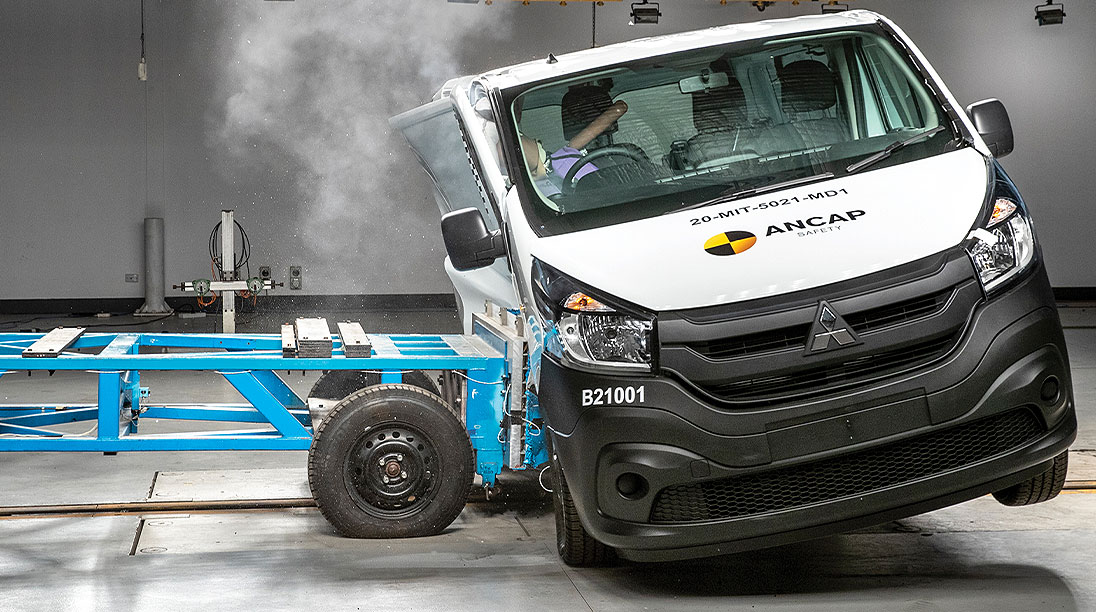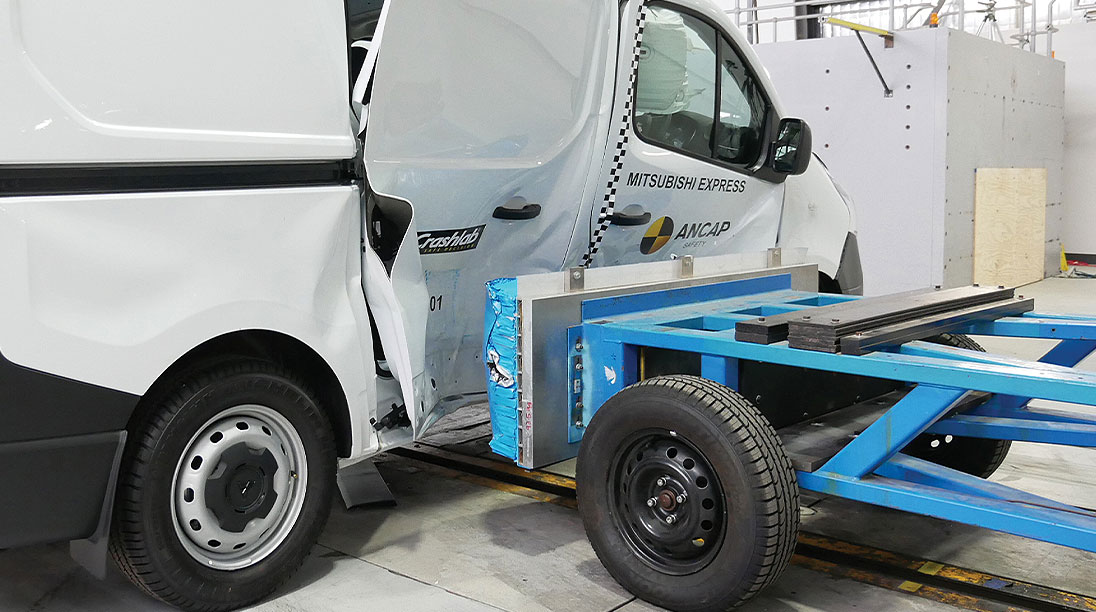And, according to the fleet industry, the fact that the vehicle is on sale exposes an alarming weakness in the Australian Design Rules, administered by the federal government.
The Australasian Fleet Management Association (AfMA) executive director Mace Hartley told GoAutoNews Premium that ANCAP (Australasian New Car Assessment Program) had done “a fantastic job” of lifting safety standards over the past 20 years or so.
“But let’s not lose sight that it’s the Australian Design Rules that has let this vehicle be on the road,” he said.
He said that ANCAP is an independent program that has a vital role in exposing safety weaknesses in vehicles on sale.
“The competitiveness of the Australian market is what drives many manufacturers to introduce cars that meet the five-star standard.”
“It’s disappointing (that the van received a zero rating) but obviously there’s a market for this car and the real culprit here is the Australian Design Rules.
“If we really wanted to do the right thing, ADRs have to be altered to set a minimum standard for vehicles. It’s not ANCAP’s job.
“I think the Australian government is letting us down by letting us have a standard so low that a vehicle like this could be here.”
Mitsubishi Motors Australia Limited (MMAL) said the Express “meets all ADRs standards for vans and the results of the crash testing by ANCAP indicates a good level of adult occupant protection overall.”

MMAL doesn’t deny that the Express, based heavily on the Renault Trafic that is listed by ANCAP as a three-star van because of a 2015 test undertaken by EuroNCAP, isn’t lagging in safety features.
“The van was designed with reference to the 2015 NCAP protocols,” a spokesman said.
“There has been significant movement in the application of driver assistance technologies since that time, which has been reflected in the new NCAP protocols against which this van has been tested.”
The Express is back on Mitsubishi’s inventory after seven years after the previous Express (1980-2013) was shelved for reasons including its poor safety rating. ANCAP gave it one star (based on a 2007 test) and summarised occupancy in a crash as having a “high risk of life-threatening injury.”
The reasons the 2020 Express has now been given a zero rating is partially because of its body design that allowed the rear cargo door to open when crashed, but mainly because the van is not fitted with – although not legally required to have – advanced driver assistance systems (ADAS) such as lane-change monitors and autonomous emergency braking (AEB).
However, it does have five airbags, brake assist, roll-over mitigation, trailer stability assistance, hill-start assist and anti-lock braking system.
“Compared to competitor peers of a similar age (2014/2015), the vehicle holds a competitive position in terms of NCAP rating,” MMAL said.
“It holds a three-star (2015) rating in Europe. ANCAP did not report NCAP’s earlier rating,” MMAL said.
“The technology included in the vehicle reflects the lifecycle of commercial vehicles, which is generally eight years or more,” the company said.
But Mr Hartley said that many fleet buyers will probably ignore the low safety rating.
He said that in spite of the hard work ANCAP did, concerns about the lacklustre ADR test were unlikely to reach small-business operators and, even if they did, operators would be more focused on vehicle price, warranty, running costs and resale values.
“The Australian fleet market has about 460,000 businesses that have more than two vehicles, but 439,000 of those have less than 20 vehicles,” he said.

“We estimate that of the thousand companies that have more than 250 fleet vehicles, everyone of those 1000 businesses has a policy where they only buy five-star rated vehicles. Unless there are no such vehicles.
“Last year, the Toyota Hiace was launched with a five-star ANCAP rating.”
He said the buyers of the new Mitsubishi Express were likely to be businesses who have one to four vehicles in the garage – estimated at 350,000 businesses – which represents 80 per cent of the fleet market.
“So when we think about this van it is likely to be used by smaller organisations who potentially don’t have safety policies because they don’t have a fleet manager,” he said.
“So when they come to select a vehicle that’s fit-for-purpose, safety might not be on the agenda. They would look at price and warranty and space/dimensions and useability. Safety could come much further down the criteria.
“These vehicles may also be purchased by an owner who – in his world – thinks he’s a safe driver.”
Mr Hartley said it was “impossible” to reach those small businesses that don’t manage their fleet.
“These are businesses where vehicle purchasing decisions are made on total cost of ownership and heavily driven by the upfront price of the vehicle,” he said.
“These vans have a shelf life of several years compared with larger fleets that will be changing their vans over three to four years.
“After that they’re back on the road in someone else’s hands. It is challenging to get awareness out there.”
By Neil Dowling












 Read More: Related articles
Read More: Related articles

